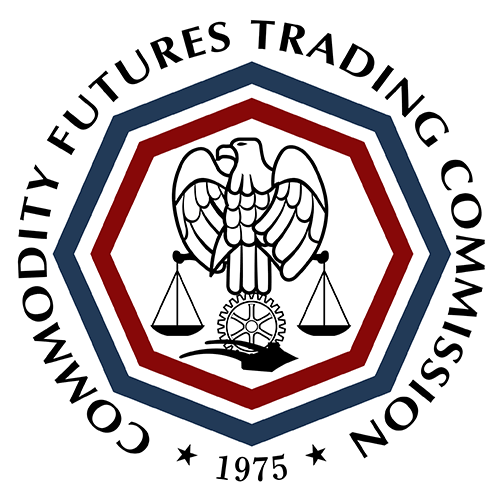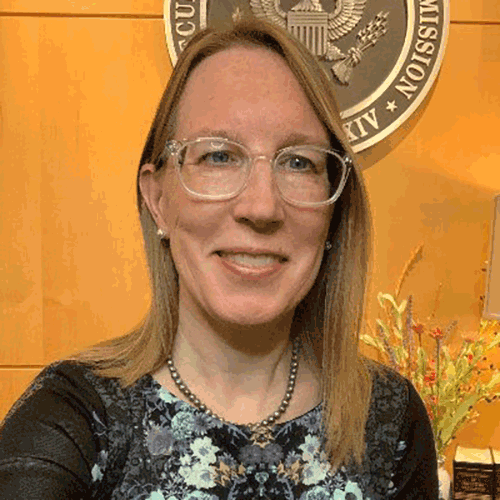SEC Commissioner Hester Peirce: We Need a More Nuanced Approach to Regulating Crypto and Blockchain
In an interview during a Boston Blockchain Association event at the US Federal Reserve Bank of Boston, Blockchain Journal editor-in-chief David Berlind speaks with Hester Peirce, one of five commissioners at the US Securities and Exchange Commission (SEC).
Peirce first clarifies the SEC's mission, emphasizing its focus on protecting investors, fostering capital formation, and maintaining market integrity. She highlights the distinction between the SEC and other regulatory bodies like the Commodity Futures Trading Commission (CFTC) and stresses the importance of understanding the various regulatory frameworks to which businesses operating in the blockchain space are legally beholden. Those frameworks could involve local, state, and federal government organizations in the US as well as other government agencies in international jurisdictions.
As the discussion progresses, Peirce addresses concerns about the slow pace of regulatory developments in the crypto space, acknowledging the complexities that businesses face in when it comes to achieving their blockchain ambitions at a time when legal clarity has yet to take form. Although she encourages caution while operating amid such regulatory uncertainty, she encourages engagement with regulators while advocating for a lighter regulatory hand when it comes to oversight of cryptocurrency and blockchain (a personally held belief that has informally earned her the nickname "Crypto Mom" in some industry circles). Peirce also delves into the potential applications of blockchain beyond cryptocurrency, and David asks about the possibility of blockchain's role in emissions data tracking, given the SEC's recent regulatory announcements regarding the disclosure of such data. Peirce was not in favor of those new regulations.
In response to David's questions about regulating blockchain and cryptocurrency on separate regulatory tracks, Peirce agrees with the need to take a more nuanced approach as opposed to painting blockchain (the platform) and cryptocurrency (an application that runs on that platform) with the same brush. Peirce emphasizes the importance of balancing regulatory oversight with market-driven solutions, hinting at the potential of self-regulation. Overall, the interview sheds light on the SEC's stance on blockchain regulation and underscores the need for collaboration between industry stakeholders and regulators to foster innovation while ensuring investor protection.
(The full-text transcript appears below.)
Published:March 25, 2024

11 min read
Audio-Only Podcast
Full-text transcript of David Berlind's Interview with Commissioner Hester Peirce of the US Securities and Exchange Commission
David Berlind: Today is March 11th, 2024. I'm David Berlind, and this is Blockchain Journal coming to you from a special Boston Blockchain Association event being held at the US Federal Reserve here in Boston. And standing with me is Commissioner Hester Peirce of the US Securities and Exchange Commission. Hester, thanks very much for joining me here on the on the Blockchain Journal [podcast].
Hester Peirce: Thanks for having me, David. It's great to be here.
Berlind: Right. So, I think you know we have a lot of people in our audience – enterprises, IT people, CEOs that type of audience –that in some cases they don't even know exactly what the mission of the SEC is. So [can] we start there and just kind of... We'll go from there into the blockchain world.
Peirce: Sure. And let me start with my disclaimer, which is my views are my own views as a Commissioner, not necessarily those of the SEC or my fellow Commissioners. The SEC is set up as a commission with five commissioners, one of whom is chairman. That's not me. The chair sets the agenda and the staff reports to him. So you kind of get a sense of the relative balance of power there.
The SEC's role is to regulate the capital markets. We regulate stock exchanges, broker-dealers, investment advisors, and mutual funds. We regulate public company disclosure. So that's kind of our set of responsibilities. Our mission is: protecting investors, fostering capital formation, and fostering the integrity of the markets.
Berlind: There are a lot of different agencies and government bodies with their hands in the crypto regulation pie. So what's the difference between the SEC and the CFTC or let's say the Congress? How does your role differ from what all of these other agencies do?
Peirce: Well, certainly Congress is in a class of its own, so they're the ones who write the laws, and they're the ones to whom we have to report. So, they set the framework within which each agency operates. And they gave us, at the SEC, the remit that I just described. The CFTC regulates the futures markets and and the swaps markets. It has some oversight when it comes to fraud over the underlying commodities markets, but it's really a futures regulator.
Berlind: OK. And within the SEC, I believe there are six Commissioners?
Peirce: There are five commissioners, and one of us is Chairman; that's Chair [Gary] Gensler.
Berlind: OK. And so, I heard in the session in there that sometimes you're referred to as the "Crypto Mom." So, let's dig into that. What is your specific role? I mean, are the Commissioners evenly divided? Do they have beats? How does this work?
Peirce: Yeah, it's a good question. We actually all work on everything. So there's no specialization among the commissioners because we all have to vote on everything. So if there's an enforcement action, we all vote on it. If there's a rulemaking, we all vote on it. Now, some actions are delegated to the staff and we don't see those, but, you know, the big things all come through the Commission. So, I just happen to be interested in crypto and maybe [I] come out a little differently than some of my colleagues sometimes on crypto.
Berlind: OK. A lot of the audience members of Blockchain Journal are thinking about deploying applications based on the blockchain platform that don't necessarily have to do with crypto. During your session, your interview with Doug Mehne, you mentioned that. You said there are some applications that that don't involve crypto at all.
So, for those organizations that are watching what's taking place in Washington, DC and they realize that it's taking a long time to get regulations done. It's taking a long time for laws to get passed. What should those organizations be doing? Because they have Chief Risk Officers, general counsels that are telling them, "Slow down because we don't know where this is going and we don't want to wake up one morning on the wrong side of the law."
Peirce: Well, I do think it's good to be cautious because there are a lot of potential legal pitfalls, and some of those really are securities-related. Even when you think you're – what you're doing might be far outside what you would think of as securities. You really need to press on that question and think about whether there are any securities, laws, [or] implications. And, as you mentioned, there are other regulators that are involved in this space. The CFTC and potentially the banking regulators could be involved as well, [and] state regulators. So, there are a lot of areas that you have to think about before you jump in and do something.
Berlind: Well, some of these companies are watching what's going on internationally. And you also commented a little bit on that. And, they feel like they might be falling behind because either A: they just can't get out of their proof of concept here in the US because they don't want to break the law even though they don't even know what the laws are. And then, also, they see other jurisdictions across the world that are a little more crypto-permissive, blockchain-permissive, and so, you see a little more activity in the way of innovation in those jurisdictions. It's a little fearful, you know, some of these companies are very fearful of falling behind, but they're sort of in a catch-22.
Peirce: No, I understand that. And I hear from a lot of people who say, "Well, we can't get beyond proof-of-concept here. So we're thinking of going outside the US" or "We're doing something actively outside the US and excluding American participants." So certainly, that's a concern for me that people feel they can't experiment in the US, and I think it's something we need to work on improving, you know, providing some sort of guidance so that people know which agency they fall under, and if so, what the rules are under that agency.
Berlind: What about those companies you talked about that are American companies thinking about doing business in other jurisdictions? JP Morgan got involved in the Monetary Authority of Singapore’s experiment with blockchains. So these companies are setting up shop in some of these other countries, like Singapore or India. Could they also end up running afoul just by the nature of the work they're doing internationally?
Peirce: Well, ideally, facts and circumstances matter, but when companies are doing business outside the US but are courting people inside the US to be involved, they need to be aware that that could potentially get you in trouble. I think the point though of your question is, that we can... If we build something here to say, "People are welcome to experiment here," companies will come and do that here; projects will come and do that here. And so that's what I'm looking forward to. A time when we actually welcome innovation and experimentation here in the US.
Berlind: But that's really not the SEC's remit. Going back to what we said earlier, their job isn't really to promote innovation in the US; it's to protect the public.
Peirce: Well, but as I said at the beginning, we have a threefold mission, and protecting investors is one component of that mission. But protecting investors doesn't only mean preventing them from getting hurt by bad things. It also means giving them the opportunity to make decisions for themselves and to have choice.
And that's a part of the investor protection mission that I think has kind of fallen off the radar a little bit. And we also have a role in facilitating capital formation. And frankly, fostering fair, orderly, and efficient markets – which is the third part of our mission – part of that is thinking about resilience in the markets, and that means allowing new competitors to come in and compete and keep the existing players on their toes. That's part of building a resilient market.
Berlind: In terms of the conversation that's taking place in DC, you talked about how the SEC wants to work with the private sector, try to understand all of their concerns, and factor that into the decisions that are being made. What can they do to speed things along, be conversational?
Peirce: Well, again, I mean, we're not in a great place now. Candidly, we're not in a great place now, but I think what the people in industry need to do – or people who are interested in using crypto – is to think about what a framework would look like, to work on developing that framework and testing it, and talking to each other about it, so that when the tides do change at the SEC and at other regulators, there will be ideas that can be put into operation – of course, after getting a proper input from the public.
Berlind: There are a lot of people, I'll say me being one of them, that thinks that maybe one way to loosen things up is to put cryptocurrency and Blockchain on separate tracks, because a lot of people are like, "Oh well, my blockchain plans don't include cryptocurrency." Is there some way they can regulate cryptocurrency on one track and allow innovation to flourish on blockchain as a platform on another track?
Peirce: Well, again, I mean I think that's part of the problem and the way that Washington has looked at this whole area, which is to sort of view everything as one lump instead of pulling it apart and seeing what the different pieces are, and what kind of a regulatory approach would make sense for the different pieces.
Berlind: So, is that an idea that's come up at the SEC? How to get those two things on separate tracks?
Peirce: Well, again, I don't think there's sort of a general paint brush that's being used, and I think that's part of what we need to work on changing.
Berlind: When you say we, who's we?
Peirce: I think we at the SEC need to be thinking more in a more nuanced way about some of these things. And the problem is, the moment you mentioned crypto or the moment you mentioned blockchain, it all gets painted with the same brush. And so we need to work on taking a more nuanced approach to these things.
Berlind: I want to just talk about one of those non-crypto applications because it sort of recently came up as a result of some decisions that the SEC has made. You guys have passed some rules now about disclosure of emissions data, and that seems to me to be an ideal application. You're already seeing some work being done in the area of disclosure of emissions, carbon credits, et cetera, using blockchain because of how transparent the record keeping is and how everybody can see it, all the different stakeholders, regulators, stockholders, customers, et cetera. And it seemed like from what I read that a lot of your action – not you in particular, but the SEC's action – was directed at disclosures so that investors could say, "Well, whom am I doing business with?"
Have you guys thought about some of those applications and how maybe blockchain could provide the underlying record keeping so that everybody can see all of that data in a fair way?
Peirce: Well, I think it's important to remember that the SEC's role is not one of trying to design how the system works, right? We set the rules. Now I just as a caveat, I did not support the climate disclosure rules. I have concerns about what those rules do. But certainly, I think there are many uses of blockchain that could help from a regulatory standpoint. In giving transparency to different things, and I certainly have heard of of people who are experimenting with uses of blockchain to track some of the things that are relevant around carbon emissions, around trading carbon credits, and those kinds of things. So that's certainly an area where I've heard there's experimentation.
Berlind: Whose job would it be in the government to take a look at a technology like blockchain to serve in that role, of providing a lot of transparency to data that is connected to regulations and laws? Because, a lot of the times, you see something happen, or maybe the SEC itself is involved in some sort of enforcement action, and just getting to the information and the data to decide whether there's some action to take, that could be very difficult because people are covering it up. There's fraud. So is there... Which agency in the government would undertake that particular initiative?
Peirce: Well, again, I think it depends on what you're actually talking about. But, I think over time, we'll see that, you know, there will be uses for blockchain that that tend to also serve a regulatory purpose. You know, I caution people not to look first to a regulatory solution. I think, you know, sometimes there are things that can be done on a self-regulatory perspective, and maybe some of those things will involve a blockchain. But I also think it's important to cabin what what the role of the government is and and to try to think creatively about where it makes sense to have a regulatory solution and where it makes sense to let the market kind of figure things out. And maybe, the market will use a blockchain as part of that solution.
Berlind: OK. Well, Commissioner Peirce, thank you very much for joining me on the Blockchain Journal podcast.
Peirce: Thank you so much. It's been fun to talk to you.
Berlind: We've been speaking with Commissioner Pierce, Hester Peirce, who is a Commissioner at the US Securities and Exchange Commission, here at a special Boston Blockchain Association event in Boston.
For more of our videos and interviews like this one, just go to our YouTube channel, Blockchain Journal, search [for] it on YouTube; you'll find us, or go to blockchainjournal.com, where all of our interviews are posted with the full-text transcripts.
Thanks very much. We'll see you in the next video.













